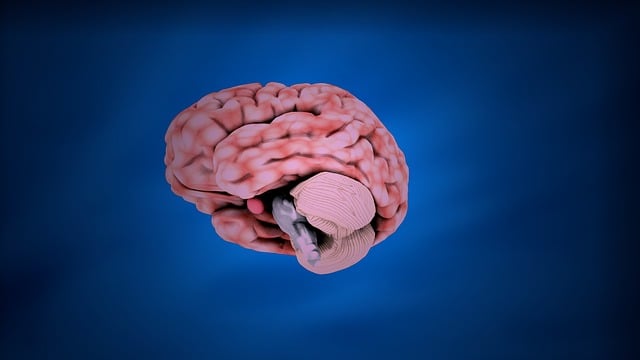Englewood Psychosis Therapy offers a holistic and inclusive approach to mental wellness group facilitation, prioritizing community, connection, and cultural diversity. Facilitators guide participants through resilience-building, emotional healing, and self-awareness exercises like Mental Wellness Journaling. Mindfulness Meditation, stress reduction methods, role-playing scenarios, and sharing circles enhance mental health awareness and coping strategies within a supportive environment. Professional development and advocacy ensure an inclusive space for diverse backgrounds and conditions, fostering trust, active participation, and transformative growth through group therapy sessions.
Mental wellness group facilitation plays a crucial role in enhancing individual recovery and building supportive communities. This article explores various techniques and approaches, with a unique focus on Englewood Psychosis Therapy, known for its innovative methods. We delve into strategies for creating safe spaces, fostering open dialogue, and encouraging peer support. From understanding the dynamics of mental health groups to implementing effective techniques, these insights empower facilitators to navigate complex emotions and promote healing, making group therapy sessions truly transformative experiences.
- Understanding Mental Wellness Group Facilitation
- Englewood Psychosis Therapy: A Unique Approach
- Effective Techniques for Group Sessions
- Fostering a Supportive Environment in Therapy Groups
Understanding Mental Wellness Group Facilitation

Mental wellness group facilitation is a specialized approach that brings people together to share experiences, learn from one another, and foster a sense of community. It’s a powerful tool for individuals navigating various mental health challenges, including those seeking Englewood Psychosis Therapy. Facilitators play a crucial role in creating a safe and supportive environment, guiding discussions, and promoting active participation.
Through techniques like resilience building and emotional healing processes, facilitators help group members process their experiences, develop coping strategies, and enhance self-awareness. One effective method is Mental Wellness Journaling Exercise Guidance, encouraging individuals to reflect on their feelings, thoughts, and progress. This not only improves communication within the group but also provides a personal record of emotions and insights, fostering a journey of growth and recovery.
Englewood Psychosis Therapy: A Unique Approach

Englewood Psychosis Therapy offers a unique and innovative approach to mental wellness group facilitation. This therapeutic model emphasizes community and connection, aiming to empower individuals through shared experiences and peer support. The program is meticulously designed to cater to diverse backgrounds and cultural contexts, ensuring inclusivity and effectiveness. By integrating evidence-based practices with a focus on self-care, Healthcare Provider Cultural Competency Training, and Mental Health Education Programs Design, facilitators create a safe space where participants can navigate their mental health journeys together.
This approach goes beyond traditional therapy by fostering a sense of belonging and collective healing. Through engaging activities, open discussions, and collaborative problem-solving, participants build resilience and learn valuable coping strategies. Englewood Psychosis Therapy acknowledges the power of community in mental wellness support, making it a game-changer for individuals seeking to enhance their emotional well-being and develop supportive networks.
Effective Techniques for Group Sessions

In facilitating mental wellness group sessions, there are several proven techniques that can significantly enhance engagement and outcomes, aligning with Englewood Psychosis Therapy’s holistic approach to mental health care. One effective method is incorporating Mindfulness Meditation exercises at the beginning of each session. This not only helps individuals focus their minds but also fosters a sense of calm and present-moment awareness, laying the groundwork for open and honest discussions. By teaching participants how to navigate stress through Stress Reduction Methods, facilitators empower them to manage symptoms and improve overall mental health in a group setting.
Additionally, encouraging active participation through interactive activities and discussions can significantly boost Mental Health Awareness. Techniques like role-playing scenarios or sharing circles allow members to express their experiences, build empathy, and learn from one another. These engaging practices not only enhance social connections but also provide valuable insights into coping strategies that resonate within the group dynamic, reinforcing a supportive environment for continuous mental wellness growth.
Fostering a Supportive Environment in Therapy Groups

Creating a supportive environment is paramount in therapy groups, as it fosters trust and encourages active participation. Facilitators play a crucial role in setting the tone for each session by ensuring members feel safe to express their thoughts and emotions openly. This involves establishing clear boundaries, promoting active listening, and validating each individual’s experience. Techniques such as reflective listening, open-ended questioning, and normalizing diverse perspectives can help build a sense of belonging.
In the context of Englewood Psychosis Therapy, facilitating a supportive group setting goes beyond the walls of a clinic. It involves creating an inclusive atmosphere that accommodates different cultural backgrounds, life experiences, and mental health conditions. Mental health professionals are encouraged to undergo Healthcare Provider Cultural Competency Training and engage in ongoing professional development to enhance their skills in navigating complex situations. Additionally, integrating strategies from Mental Health Policy Analysis and Advocacy ensures that the group’s needs are considered within a broader framework, promoting holistic care and improving outcomes for all members.
Mental wellness group facilitation plays a pivotal role in enhancing collective well-being, and techniques like Englewood Psychosis Therapy offer innovative solutions. By fostering supportive environments and employing effective strategies, facilitators can create safe spaces for individuals to navigate mental health challenges. This article has explored these concepts, highlighting the importance of understanding diverse approaches, such as Englewood Psychosis Therapy, to facilitate meaningful group sessions that promote healing and growth.



